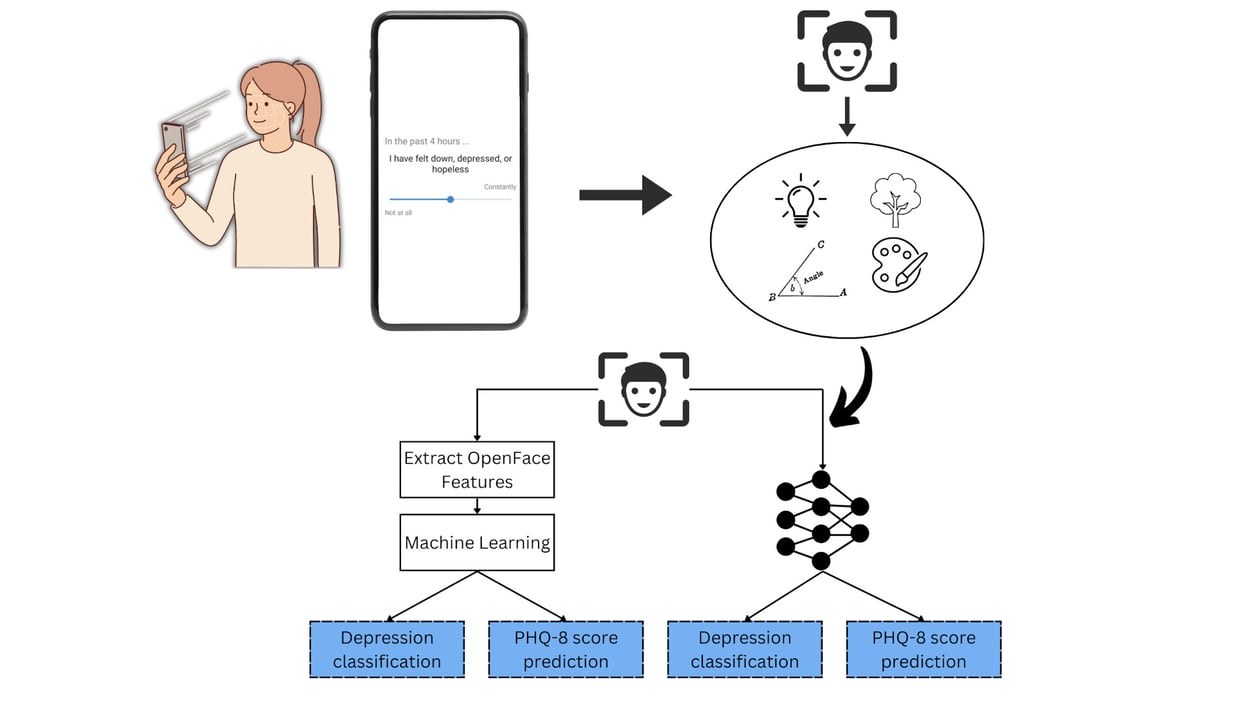Clinical trials
Icon acquires digital startup HumanFirst
As pharma companies wrestle with how and when to use wearables and other digital technologies to measure how their experimental drugs impact patients, clinical research giant Icon acquired HumanFirst, which maintains a platform designed to answer exactly those sorts of questions. HumanFirst's database of digital measurements and their underlying evidence is used by drug companies to research what tools are available to measure things like physical activity or sleep for a particular disease. The hope is that robust intelligence can help drug developers move more quickly and avoid mistakes that require costly changes to trial protocols.
Read more here
Research
Depression snapshots from your selfie camera

As researchers try to figure out how to use everyday devices like smartphones to tackle stubborn mental health issues, scientists at Dartmouth have devised a clever, if potentially concerning, method for capturing the day-to-day fluctuations of depression using a smartphone camera. Called MoodCapture, the experimental system takes a burst of of images from users as they answer the PHQ-8 survey — specifically when asked if they have recently felt down, depressed, or hopeless. The idea is that these "unguarded" photos may be subject to less bias than those captured when people are mugging for the camera.
MoodCapture was developed in a study of nearly 200 people with major depressive disorder who contributed over 125,000 photos that were used to train a system that predicts depression based on images, claiming 75% accuracy. The research is currently described in a preprint that will be presented at a conference in May. The work is in early stages — it's based on a non-representative sample of people and the researchers are now working to see if they can refine the depression classification. Andrew Campbell, a professor of computer science who led the study, said a tool like MoodCapture could eventually be tied to tech-based intervention for depression, like a chatbot.
More broadly, the research is likely to raise alarm among people who are rightly concerned that omnipresent cameras are making judgements about their mental health, cognitive state, and more. In the study, 38% of participants found having their photo taken in the background intrusive. Campbell said he had expected even more people to be put off by MoodCapture. He said future advances in on-device processing of images could help assuage people's privacy concerns.
research
New mouse study for Alzheimer's device treatment
Last month, I wrote about the the progress of a company called Cognito Therapeutics that's currently running a randomized trial of a device that uses light and sound stimulation to combat neurodegenerative effects of Alzheimer's disease. As Cognito positions itself as an alternative to drugs, the company has faced many questions about what exactly gamma waves are doing to the brain.
A new article published in Nature offers a response of sorts in the form of many pages of very detailed science. Authored by the MIT researchers that discovered the techniques Cognito has further developed, the article describes how in mouse models, the gamma stimulation promotes the clearance of amyloid, abnormal plaques that disrupt cell function in the brain. Fans of brain biology dive in.


No comments